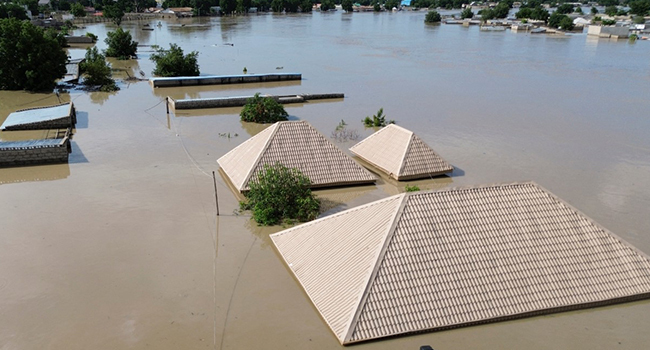Africa
Flood Relief in Maiduguri: Addressing Challenges in Aid Distribution, by Bilqees Uthman Malami

The recent flooding in Maiduguri, the capital city of Borno State, has wreaked havoc, leaving behind a trail of destruction. Houses, markets, schools, and other infrastructure have been severely affected, displacing many residents and creating a significant humanitarian challenge.
In response to the disaster, the Borno State government formed a committee named the Borno State Flood Relief Committee. The committee was tasked with visiting all affected areas within the city, documenting the damages house by house, and distributing relief materials to the victims. While this initiative has brought hope to many, some challenges have arisen during the execution of the relief program, leaving affected residents frustrated.
Gaps in Coverage
One notable issue is the incomplete coverage of affected areas. Reports indicate that certain neighborhoods, such as Gidan Dambe, Gidan Yashi, and Bayan Kwatas, were either overlooked or only partially assessed by the committee. In some cases, specific houses within these areas were bypassed entirely, leaving residents feeling neglected and uncertain about their inclusion in the relief process. Although the committee is still actively working, many residents worry that they might be permanently excluded from receiving the much-needed support.
Disputes Over Ownership
Another significant challenge involves disputes over property ownership. In one instance, a woman named Yakaka was absent when the committee visited her neighborhood. During her absence, another individual falsely claimed ownership of her house, provided his bank details, and was recorded as the rightful beneficiary. Similar cases of misrepresentation and fraud have been reported, raising concerns about the transparency and accuracy of the relief distribution process.
Neglect of Renters
The plight of renters is another pressing issue. Many tenants have lost their personal belongings to the floods, yet they are excluded from receiving direct aid because the relief materials are handed over to property owners. In most cases, landlords prioritize repairing structural damages to their houses, leaving tenants to shoulder their losses independently. While some landlords have agreed to share the relief materials with their tenants, others have refused, compounding the renters’ hardships.
The Way Forward
The Borno State government’s effort to provide relief is commendable, but these challenges highlight the need for more robust strategies to ensure fairness and effectiveness. A few recommendations include:
1. Improved Monitoring and Coverage: The committee should establish a tracking system to revisit overlooked areas and verify that all affected households are documented and supported.
2. Verification of Ownership: To prevent fraud, ownership claims should be thoroughly investigated, possibly involving neighborhood leaders to confirm rightful beneficiaries.
3. Inclusive Aid Distribution: Relief measures should address both property owners and renters, recognizing that both parties have suffered losses and are in need of support.
The residents of Maiduguri have shown resilience in the face of this disaster, but the resolution of these issues will ensure that the government’s efforts to assist the victims are impactful and equitable. The flood relief initiative has the potential to be a lifeline for those affected, provided that these systemic challenges are resolved.
























